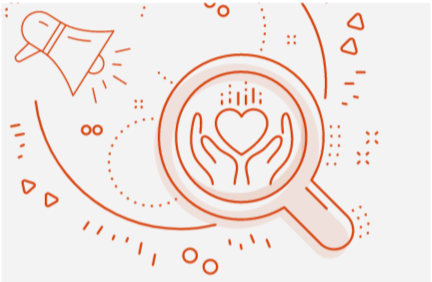By Annemarie Allain, '00
There are nearly 2,087 working hours per year, yet according to Gallup, 20% of the world’s employees experience daily loneliness.
That’s a lot of time to spend somewhere that makes you unhappy.
It’s time to make thoughtful investments in cultivating workplace belonging. And the results of doing so extend beyond personal satisfaction and well-being.
“Loneliness has a significant effect on work output, limiting individual and team performance, reducing creativity and impairing reasoning and decision making,” claims the Center for Workplace Mental Health.
World Mental Health Day
On Thursday, Oct. 10, people and organizations worldwide will celebrate World Mental Health Day. The 2024 theme, “It is Time to Prioritize Mental Health in the Workplace,” couldn’t come at a better time. More people continue to report micromanagement, inadequate salaries, shifting expectations, excessive workloads and other factors impacting their ability to thrive at work.
It’s not surprising that in their 2024 State of the Global Workplace Report, Gallup found that employee engagement is a significant factor in overall life experiences: half of employees who are engaged at work are thriving in life overall.
Additionally, they noted that well-being among younger employees (under 35) had declined more steeply than for other age groups. Major factors include not feeling cared about or having their opinions valued at work, lacking opportunities to learn and grow and needing greater access to their managers for progress discussions — challenges which culminate in them being less likely to see a future for themselves in their current roles.
Does any of this sound familiar? If so, let’s explore ways you can combat loneliness and improve mental well-being in the workplace.
6 ways to foster a healthier workplace
Catch up with coworkers.
It seems basic, but even a minor conversation goes a long way. Whether it’s remembering little things, like details about a colleague’s kids or their dog’s name, people feel good when someone takes an interest in their lives.
Take time to unwind.Getting a good night's sleep can reduce stress and irritability and help regulate emotions. This helps create the foundation for managing frustrations or feelings of isolation.
Offer a round of applause.The US Department of Labor reports that peer recognition creates a culture of positivity. So, whether your managers recognize good work or not, take time to praise your colleagues — it could be the difference they need to feel appreciated or seen.
Leverage employee groups.Check whether your company offers clubs or groups that align with your hobbies and interests. If it doesn’t, be the change and start one.
Hit the pause button. According to Mental Health America, it’s important to “allow yourself to regroup from any stress, frustration or anger you are feeling” by getting away from your desk for 10 minutes. That might look like a brief walk or grabbing a snack to boost brain power.
Be in someone’s corner — and they’ll be in yours.Your knowledge and influence can benefit someone up-and-coming in your field or new to your workplace, ensuring they get a strong start and feel connected to at least one person. Ready to be a mentor or a sounding board? Your workplace and OSU Connections are great places to start.
Commit to taking care of yourself
Steps like the above benefit you and help boost overall team morale. While work is only one factor impacting mental health, when employees find their work and professional relationships meaningful, it has a big impact on their productivity, career growth and the ability to feel positive about their life and career trajectory.
If you want to learn more about how to banish workplace loneliness and build a culture of well-being and balance in your life, tune into OSUAA's Ask Alumni webcasts on mental health with licensed professionals throughout October. View the upcoming topics at ForOregonState.org/AskAlumni.

